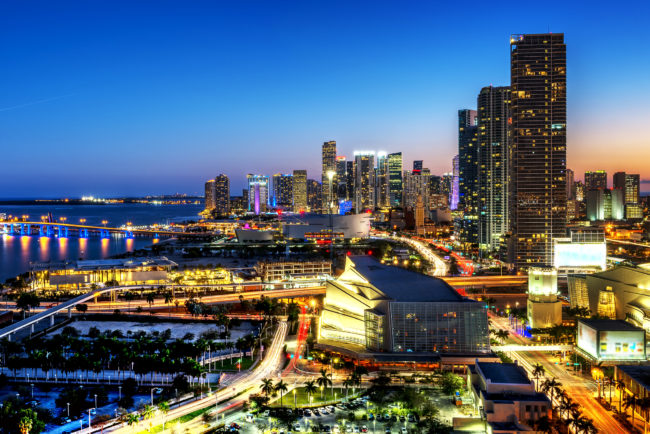After a months-long battle, the U.S. Nuclear Regulatory Commission (NRC) recently granted Florida Power and Light’s (FPL) application to: (1) build two new nuclear reactors at its Turkey Point Generating Station; (2) store wastewater from the proposed nuclear reactors under Miami’s drinking water aquifers; and (3) eventually store nuclear waste near the same site. This application was granted despite previous citations issued to FPL for its leaks of saltwater into drinking water and wastewater into Biscayne Bay that were from its other operations.
In its application, FPL sought permission to store wastewater for the two proposed nuclear reactors in an area called the “Boulder Zone” under its Turkey Point site, which already houses two nuclear reactors. The Boulder Zone is a rocky area of salt water located approximately 3,000 feet below ground. If the wastewater leaks out of the Boulder Zone, it could theoretically leach four cancer-causing contaminants into Miami’s water supply. The Atomic Safety and Licensing Board held in its initial decision granting FPL’s request that the “environmental impacts from a [potential leak ]will be ‘small’ because: (1) the wastewater is unlikely to migrate to the Upper Floridian Aquifer; and (2) even if it did, the concentration of each of the four contaminants would likely be below the applicable EPA drinking water standard and would pose no known health risk.” This decision has met resistance from environmental groups such as the National Parks Conservation Association. The NPCA challenged the idea that FPL, which has previously leaked saltwater into freshwater aquifers, could guarantee that no leaks of contaminated water would occur.
If there was a leak of wastewater, the environmental groups and municipalities that intervened in the case allege four contaminants found in the wastewater would adversely impact the water in the Upper Floridian Aquifer. These contaminants — heptachlor, ethylbenzene, toluene, and tetrachlorothylene — have various uses in industrial applications, but are all dangerous when ingested. Heptachlor is an insecticide prohibited by the EPA except for the specific application of fire ant control in underground power transformers. Toluene, ethylbenzene, and tetrachlorethylene are chemicals often found in dry cleaners and oil processing plants. Pursuant to the Safe Drinking Water Act, 42 U.S.C. §§300f, the EPA has established Maximum Contaminant Levels for drinking water. These levels have been determined to be the maximum levels of chemicals that are permitted in water and have been found not to be harmful to public health. FPL defended its proposed storage sites and reactors by providing convincing evidence that if any of the four contaminants leaked into the water supply, the contaminants would not be at a level that would endanger public safety.
The environmental groups and municipal governments that oppose the proposal, which include The Southern Alliance for Clean Energy (SACE), the National Parks Conservation Association, and the City of Miami, are dissatisfied to say the least with the decision, with Miami’s City Attorney saying that the “FPL has failed to adequately demonstrate that…the cumulative impact to the natural physical environment would be small.”
Included in FPL’s proposal was its plan to eventually store low-level “nuclear” waste in the Boulder Zone. Unfortunately for SACE, its complaint was filed so early in the permitting process that it was unaware of this portion of the plan and was unable to enter its objection to the proposed storage of nuclear waste in the area. This omission paves the way for FPL to potentially store nuclear materials near the drinking water aquifers, in addition to wastewater. SACE has twenty-five days to appeal the ruling. No matter the action taken by the opposition, FPL will have to wait several more years, if not decades, to actually build the reactors and begin storing the materials at the Turkey Point site, as the permitting and construction process will be lengthy. It is likely that this project will continue to generate extreme levels of controversy as it moves forward.

